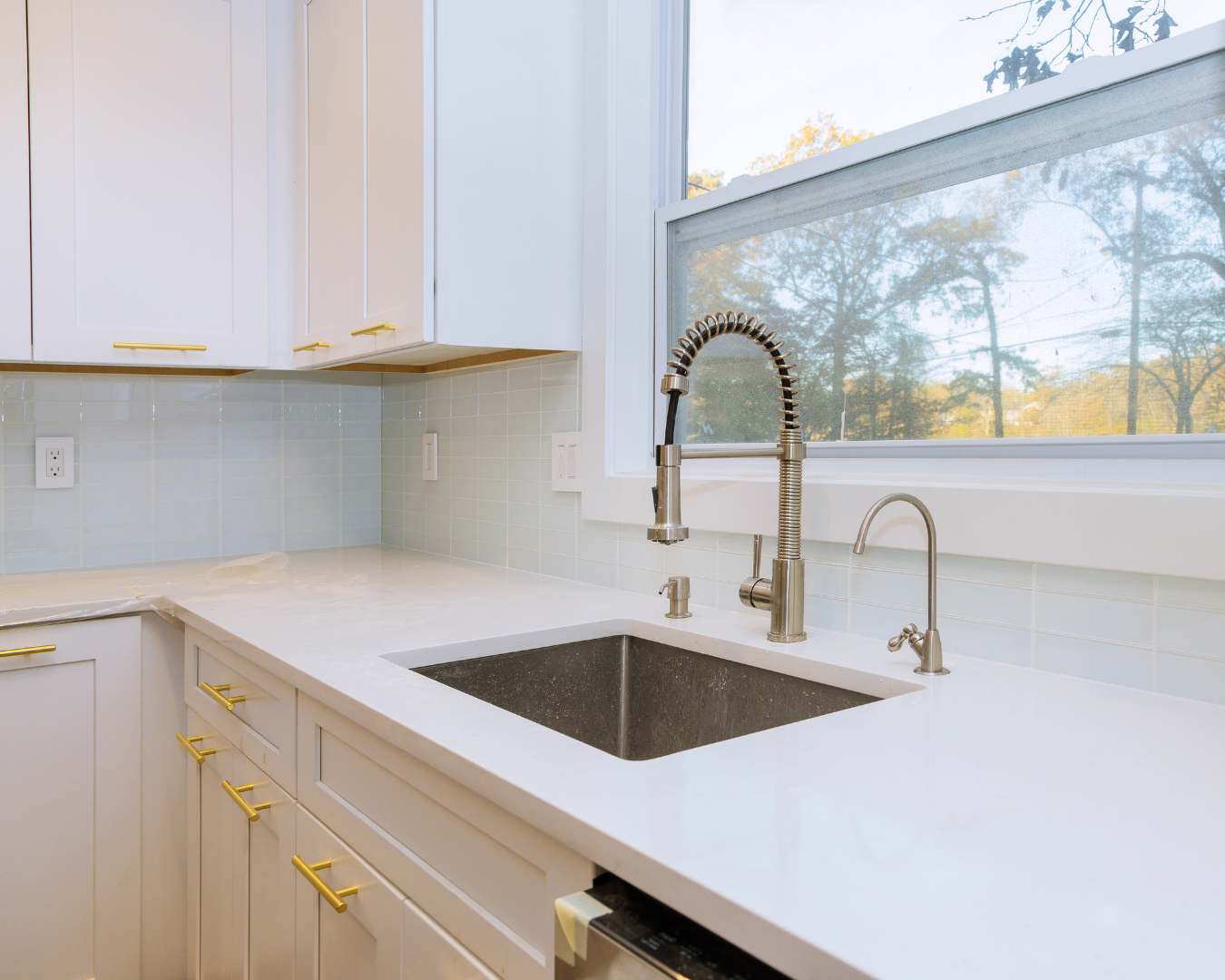How to Clean and Maintain Your Kitchen Sink
A clean and well-maintained kitchen sink is essential for a hygienic and functional kitchen. Over time, sinks can accumulate stains, mineral deposits, and bacteria, making regular cleaning crucial. In this blog post, we’ll explore the best methods for keeping your kitchen sink sparkling clean and provide tips for maintaining different sink materials like stainless steel, porcelain, and granite.
General Cleaning Tips
- Daily Rinse and Wipe: After using your sink, rinse it thoroughly with hot water to remove any food particles and soap residue. Wipe it down with a soft cloth to prevent water spots and soap scum buildup.
- Regular Scrubbing: Use a non-abrasive scrubber and a mild detergent to scrub the sink at least once a week. This helps remove any buildup and keeps the sink looking fresh.
- Disinfecting: Disinfect your sink weekly with a solution of one part bleach to ten parts water. Let it sit for a few minutes before rinsing thoroughly. Alternatively, use a commercial kitchen disinfectant.
Cleaning Stainless Steel Sinks
Stainless steel sinks are popular for their durability and sleek appearance. However, they can show water spots and scratches if not properly maintained.
- Avoid Abrasive Cleaners: Use non-abrasive cleaners and scrubbers to avoid scratching the surface. Baking soda is an excellent gentle cleaner for stainless steel.
- Polishing: To maintain the shine, use a mixture of vinegar and water (1:1 ratio). Spray it on the sink and wipe with a soft cloth. For extra shine, you can use a few drops of olive oil on a cloth and buff the sink.
- Removing Hard Water Stains: Hard water stains can be removed with a mixture of vinegar and water or a commercial hard water stain remover. Apply the solution, let it sit for a few minutes, then scrub and rinse.
Cleaning Porcelain Sinks
Porcelain sinks are known for their classic look but can be prone to chipping and staining.
- Gentle Cleaning: Use a non-abrasive cleaner and a soft sponge to clean porcelain sinks. Avoid using harsh chemicals or abrasive pads that can damage the surface.
- Stain Removal: For tough stains, make a paste of baking soda and water or use a mild abrasive cleaner. Apply the paste, let it sit for a few minutes, then scrub gently with a soft sponge.
- Preventing Stains: Avoid leaving tea bags, coffee grounds, or other staining substances in the sink for long periods. Rinse the sink immediately after use to prevent stains from setting.
Cleaning Granite Sinks
Granite sinks are stylish and durable but require special care to maintain their appearance.
- Avoid Harsh Chemicals: Use mild dish soap and warm water for daily cleaning. Harsh chemicals and acidic cleaners can damage the stone.
- Stain Removal: For stubborn stains, make a paste with baking soda and water. Apply it to the stain, let it sit for a few minutes, then scrub with a soft brush and rinse thoroughly.
- Sealing: Granite sinks may require periodic sealing to maintain their resistance to stains and water damage. Check the manufacturer’s recommendations and reseal as needed.
- Drying: Always dry the sink with a soft cloth after cleaning to prevent water spots and mineral deposits.
Additional Maintenance Tips
- Prevent Clogs: Avoid pouring grease, coffee grounds, and large food particles down the drain. Use a sink strainer to catch debris and clean it regularly.
- Odor Control: To keep your sink smelling fresh, pour a mixture of baking soda and vinegar down the drain once a month. Let it sit for a few minutes, then flush with hot water.
- Protect the Surface: Use a sink mat or grid to protect the surface from scratches and heavy impacts.
By following these cleaning and maintenance tips, you can ensure that your kitchen sink remains clean, hygienic, and in excellent condition, no matter what material it is made from. A well-maintained sink not only enhances the look of your kitchen but also promotes a healthier cooking environment.

